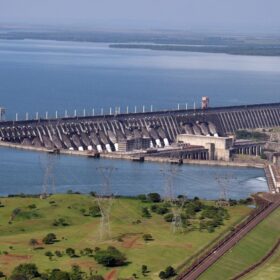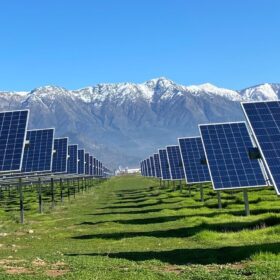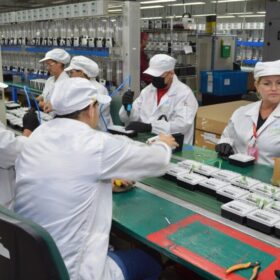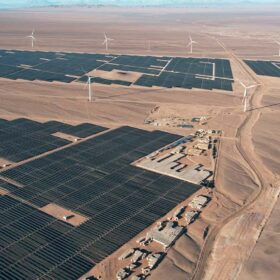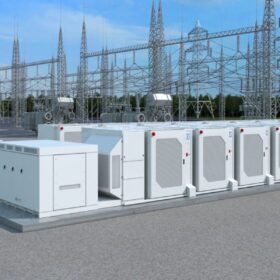Chilean government proposes solar FIT cut for distributed generation
A coalition of three renewables associations in Chile have released a joint statement expressing “deep concern and opposition” to the Chilean government’s proposals to reduce income for distributed generation.
Binational tender launched for 1 MW floating PV plant in Brazil, Paraguay
The plant will be located in the reservoir of the Itaipu Hydroelectric Power Plant. The tender is open until September 5, and the designated time period for the installation of the floating solar plant is about four months.
Uruguay attracts 11 bidders vying to build 25 MW PV plant in Punta del Tigre
The Uruguayan firms include Berkes, Ebital, Impacto Construcciones, Ingener, MGI SA, Teyma Uruguay and Ventus Ingenieria; together with Cttech, Prodiel and the Chinese companies DTW and Power Construction Corporation of China.
Chile boasts 3,962 MW of PV under construction
There are currently more than 3.9 GW of photovoltaic power under construction in the country. Nearly 70% of Chile’s electricity generation in June was renewable, and solar energy accounted for 15% of monthly generation.
Livoltek commissions inverter factory in Brazil
The company opened an inverter factory in the Manaus Free Trade Zone with a capacity of 1.8 GW, or 300,000 units per year. In the second phase, it plans to bring in the production of hybrid inverters and lithium batteries as well as chargers for electric vehicles and motors for electric boats. The company will have distribution centers in Curitiba and Fortaleza to ensure rapid delivery of equipment to the domestic market, with a minimum warranty of 10 years.
Colombia: 922.8 MW of PV projects under construction
According to the country’s Mining and Energy Planning Unit, of all the projects currently operating in Colombia that it is aware of, 10,672 MW are photovoltaic, followed by 8,452 MW of wind, 1,973.9 MW hydraulic, 672 MW thermal and 42.7 MW biomass.
Enel Chile begins commercial operation of its largest hybrid project in the country
The PFV Las Salinas stages 1, 2 and 3, which totals 205 MW, will operate jointly with the 112 MW Sierra Gorda Este wind farm and will be the largest industrial-scale hybrid renewable generation center in the country, according to Enel.
Puerto Rico in line for 1.14 GWh of battery storage
A new U.S. Department of Energy loan guarantee will help finance 200 MW of solar and 285 MW of grid-scale storage on the island.
Panama cancels renewables auction
Panama has canceled an auction it announced in February for 500 MW of renewable energy capacity. It would have been the country’s first renewable energy tender in a decade and the first in Central America to include battery storage systems.
Grid backlog drives innovative approaches in Brazil
The rapid growth of renewable energy in Brazil has not been matched by transmission and distribution infrastructure. Connection restrictions for both “distributed-” and centralized-generation sites are leading companies to adopt new strategies to maintain expansion, reports pv magazine Brasil’s Livia Neves.

